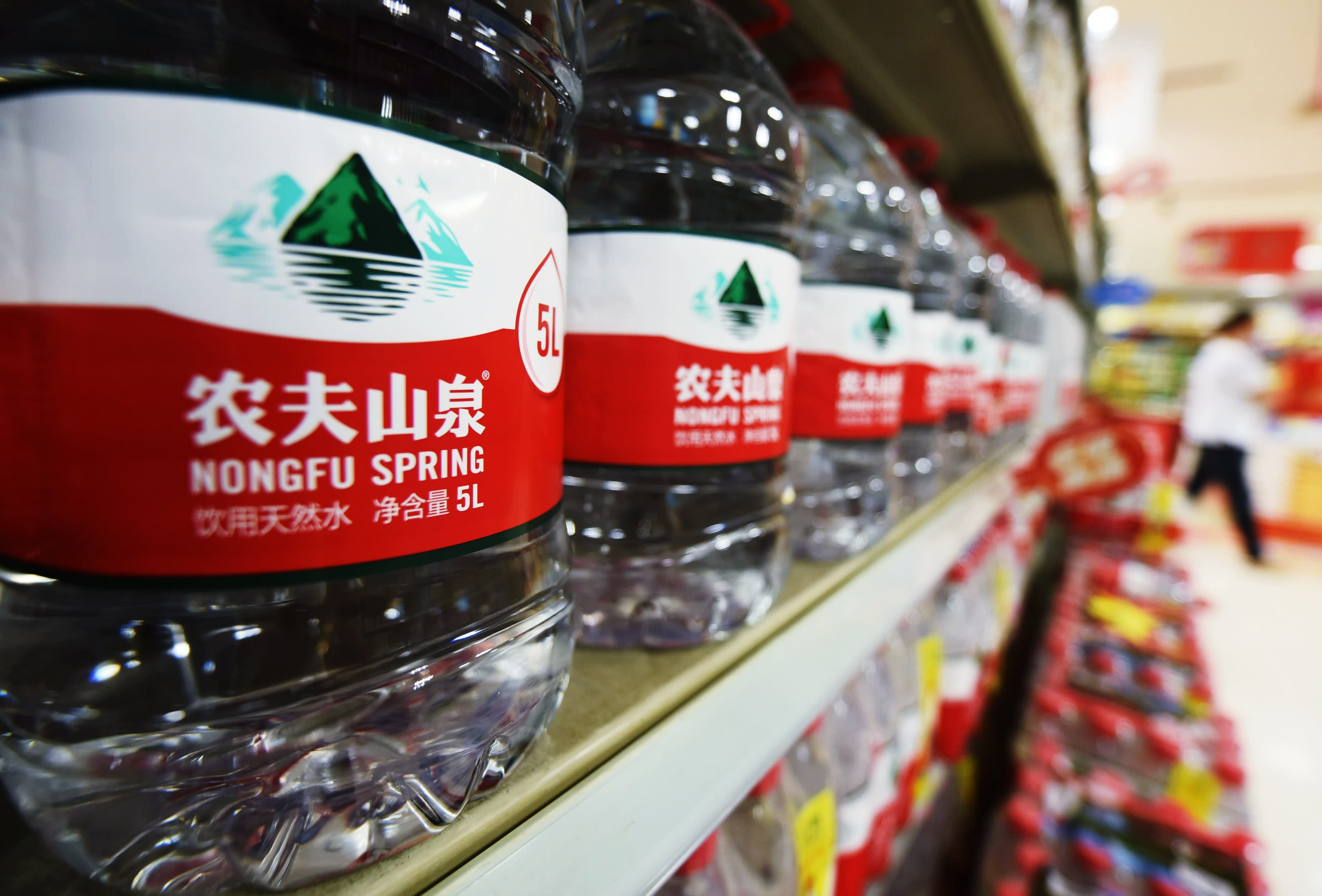
Nongfu Spring’s bottled water in a supermarket in Hangzhou, China.
Costfoto | Barcroft Media | Getty Images
SINGAPORE — Shares of Chinese bottled water giant Nongfu Spring surged more than 85% in their debut on the Hong Kong stock market on Tuesday.
The stock opened at 39.80 Hong Kong dollars per share ($5.14) before inching down to around 35.00 Hong Kong dollars ($4.52). Its initial public offering price was 21.50 Hong Kong dollars ($2.77), allowing the company to raise around $1.1 billion.
Dickie Wong, executive director of Kingston Securities, told CNBC’s “Squawk Box Asia” that Nongfu Spring was “one of the hottest IPO ever” in the history of Hong Kong’s stock market. He pointed out that the IPO was oversubscribed by 1,148 times.
Wong explained that investors are interested in the stock not only for its “fundamentals or its very high profit margin.” He added that there has been a general lack of investment opportunity given that valuations of many stocks — especially technology or internet companies — are high.
“So investors think (participating) in a new IPO is always the best strategy,” he said.
Investors have also been turning to stocks as interest rates globally remain low, said Fraser Howie, an independent analyst.
“Ultimately, half the world is operating on negative rates and half of the rest of them is operating on zero rates, and governments keep printing money,” he told CNBC’s “Street Signs Asia.”
“The world is awash with money, Chinese stocks are hot,” he added.
Nongfu Spring sold 388.2 million shares in its IPO deal. Its cornerstone investors include fund manager Fidelity, hedge fund Coatue and Singapore sovereign wealth fund GIC. Its IPO is one of the largest in Hong Kong this year.
In addition to bottled water, the company produces other packaged drinks such as tea, coffee and fruit juices. The company, citing a Frost and Sullivan report, said it had the largest share in China’s packaged drinking water market from 2012 to 2019.
Nongfu Spring said its 2019 revenue jumped 17.3% to 24.02 billion yuan ($3.51 billion). But in January to May this year, its revenue fell 12.6% year-over-year to 8.66 billion yuan ($1.27 billion) with sales affected by the coronavirus outbreak, the company said.
Source: CNBC
